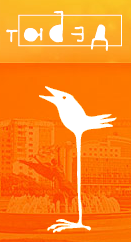Cover of Греко- и римско-кафолические песенки и потешки, 1989-2009 (М.: Время, 2009)
NOTE: I’ve gotten into
the habit of posting a Russian nativity poem each Christmas, and while so far
it’s all been Brodsky (see here and here), this year I’m introducing a new
voice. Below are the final lines of Timur Kibirov’s poem “The Den,” where all eyes
are turned toward the mother and child. The poem was published in Kibirov’s 2009 collection Greek and Roman Catholic Songs and Nursery Rhymes (Греко- и римско-кафолические песенки и
потешки).
*
* *
From “The Den”
And the magi came in with plumes of steam
as they carried in gifts for the newborn king,
while nearby the men gathered shyly together,
each gripping a hat made of fur like the others,
and his papa did not have the slightest notion
what to offer his guests or where he should put them,
while his mama could see not a single soul,
not a one, except for her very own son,
and the ox lackadaisically chewed its cud,
and the donkey’s long ears quaked and twitched on its head,
but the newborn just sucked at the boob.
Meanwhile, in Kerioth, another child
held in his lips a taut nipple and fed,
while far, far away, across the vast sea,
a third child gulped down his milk with greed—
the very same one who would fasten a sign
to the cross declaring Him king!
Translated from the Russian by Jamie Olson



